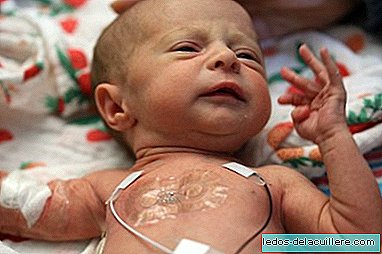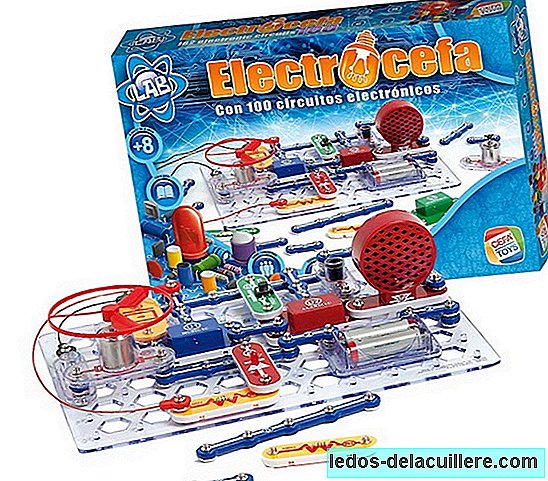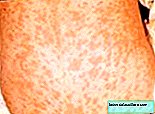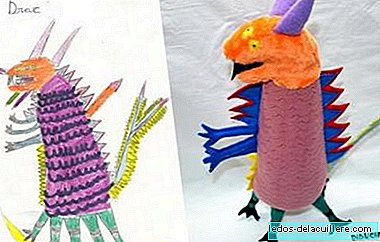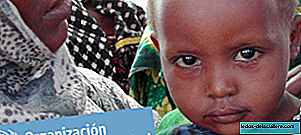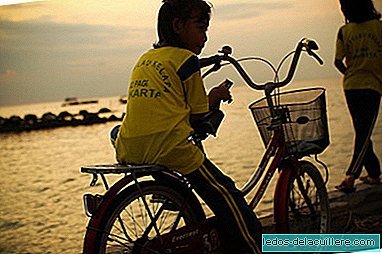
Human babies have a food that naturally gives them their mother's breast and is the best for their growth and development. There is no doubt about that and there are more and more studies that support it, although, my opinion is that, rather than demonstrating the benefits of breast milk, they show the harm of artificial milk, even if that is politically incorrect. But the question I raise is another. Should artificial milk be considered a medicine?
First of all I want to clarify that this is an article of personal opinion. However, my opinion is not unfounded. I am aware that many babies, for various reasons, are not breastfed.
Many babies do not drink breast milk
Some receive artificial milk from birth, even being deprived of colostrum. Some are premature or have health problems that can be increased by not giving them milk from their mother. Some, many, do not get to have an exclusive feeding of breast milk until six months and there are very few that exceed two years as advised by the most important organisms on world health.
But the reality is unquestionable, many babies do not drink breast milk or they don't take it long enough to do without artificial milk.
Changing the trend and improving breastfeeding rates is a public health necessity. Especially since the real medical reasons for not breastfeeding are very few and most women who wanted to breastfeed and could not do so would surely have achieved it with adequate information and support.
Lack of breastfeeding culture, the weakness of the knowledge of some health workers, the lack of support or a network that supports the mother, takes care of her and teaches her to overcome the real problems of breastfeeding, are the causes of this epidemic of hypolactia. In addition, the reality is that the world of work is completely hostile to breastfeeding and does not offer enough help, time or guarantees so that women can continue breastfeeding when our short maternity leave ends.
Moms are not guilty of this, it is an accumulation of circumstances that, even when they fight and struggle, when they cry and are distressed, when they try and face problems, they can more than Nature itself. Many women do not breastfeed, cannot or do not know or fail to solve problems or do not receive adequate information. The causes are multiple, the reality, thousands of mothers must buy an industrial product to feed their babies and nobody helps them.
If Michellle Obama supports breastfeeding with the idea of subsidizing breast pumps, I believe that the best way to promote breastfeeding while ensuring the best product for children fed artificial milk is to consider it a medicine, control it as such and pay for it. as such when really necessary.
Of course, you have to work to give them tools and support to continue breastfeeding if they want to do it. In addition, for those who decide, with all the information, not to breastfeed, we must also be aware that, even if they give artificial milk, they want the highest possible quality and health guarantees for the food they give to their little ones, to those they love Like who breastfeeds, something I should not mention but I want to make it very clear.
Artificial milk in public health
My opinion is that yes, that artificial milk should be considered a medication at all levels: control, authorization, marketing, prescription and family rights.
The reasons are many and all affect what would be the best way to guarantee and ensure a best possible product, with the greatest controls and investigations, with specific analyzes and protocols for their production and distribution, and with the clearly specified side effects so that the parents, who are entitled to it, know them.
In addition, as I will explain, considering it a medicine would make the health system deeply involved in improving breastfeeding rates, informing correctly, it would help mothers and would involve an economic collaboration with families that cannot give breast milk to babies, needing Buy this product for your children.
Non-breastfeeding has always existed
There have always been children who could not be fed by their mothers. Let's not fool ourselves, the problems in human breastfeeding exist and are greater when the mother is disconnected from her sisters or the greater the general or social health problems in each era.
In addition, historically, for reasons of death of the mothers, for problems in breastfeeding or for separations, there was always the need to go to milk other than breast milk. From an old age there are data on the predecessors of our bottles or mothers who breastfed, as paid nurses or as friends or sisters, to the children of another woman.
Nurse milk, goat or donkey milk and even condensed milk have been used, which was what they gave my mother when she was a baby as a complement to her mother's milk, diminished for reasons my grandmother blamed to war, fear, and famine.
With the extension of the artificial milk industry, parallel to the growth of surplus vaccine cattle, there came a time when there was hardly any control over product quality and even less over aggressive advertising strategies in favor of this product. And the medical and social mentality inclined so in favor of the bottle that it would qualify the tendency against the bases of the natural breastfeeding. This will change, as we will see in the following topic, to reach the current situation.
Should artificial milk be considered a medicine?
I am fully aware that the idea that artificial milk is considered a medicine It's something personal and maybe controversial. However, I am fully convinced that it is the best measure to guarantee the rights of children and their families.
We will see in the following topic what this industry implied, the way in which it was extended artificial feeding and the consequences of this, to culminate in the reasons why I consider that for families, public health and children themselves, it is convenient to move on to consider it a medicine.


